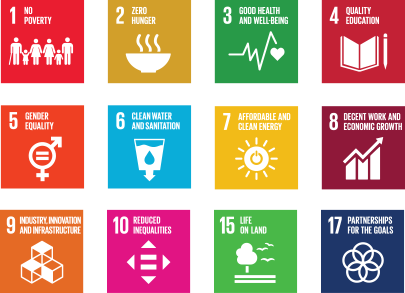About the Report
ICICI Bank, as a responsible corporate, is committed to building a sustainable future. It is steadfastly focused on delivering on its Environmental, Social and Governance (ESG) agenda through targeted initiatives.
Message from the Chairman
 Responsible financing has
emerged as a key priority for us.
Responsible financing has
emerged as a key priority for us.

Girish Chandra Chaturvedi
Chairman

Highlights
ICICI Bank
Empowering Women
Provided loans to
9 million
women
through
692,000
SHGs
of them,
3.8 million
were first-time borrowers
Inclusive Banking
51%
branches in rural and semi-urban areas
13,168
Business Correspondent Agents
Servicing
20,540
unbanked locations
21.1 million
Basic Savings Bank Deposit Accounts (BSBDA)
Digital Rural Banking
eSign
Enabled digital signing of loan documents for farmers during fiscal 2022
Nearly 95%
Rural loan applications sourced digitally using Express Agri app
2,000
Villages enabled with contactless credit appraisal with satellite data inputs
ICICI Foundation for Inclusive Growth
Beneficiaries trained since inception till March 31, 2022
Total
765,166
Women beneficiaries
418,874 (55%)
Rural Livelihood Programme
447,619
ICICI Academy for Skills
185,543
ICICI RSETI
132,004
Beneficiaries trained in fiscal 2022
Total
184,086
Women beneficiaries
97,231 (53%)
Rural Livelihood Programme
140,622
ICICI Academy for Skills
25,893
ICICI RSETI
17,571
Social Return on Investment (SROI) of ₹1.00
₹19.50
for Social and Environmental Projects
₹17.86
for value chain projects
₹9.48
for dialysis project
₹8.34
for ICICI Academy for Skills
Broad-based Board of Directors at ICICI Bank
Board of Directors (11)
Independent Directors (8)
Executive Directors (3)
Robust Role of Independent Directors
They chair most committees
They constitute the majority in most committees
They fully constitute some committees
ESG Governance and Responsible Lending
Adopted the Board approved ESG Policy into governance structure. Risk Committee of the Board oversees ESG related matters
New project proposals above a threshold value are reviewed for finance under Social and Environmental Management Framework
Introduced Climate Risk Management Framework to:
- Assess impact of climate change on the Bank’s operations
- Manage climate risk of the Bank’s loan book
- Integrate material climate risk in existing risk framework
The Bank’s outstanding responsible finance portfolio stood at
₹73.80 billion
at March 31, 2022
Cyber Security and Data Protection Governance
Multiple levels of management oversight with ultimate responsibility lying with the Board of Directors
24x7 monitoring and surveillance of IT systems
Personal Data Protection Standard was further strengthened
Tenets of Customer Engagement
Fair to Customer, Fair to Bank
Ensure rightselling of products
Dedicated customer service team
Leverage technology to enhance customer experience
Continuous upskilling of employees
Zero tolerance to unethical conduct by employees
Data security
ICICI Bank
Green Energy
11.19 million kWh
(Kilowatt hour) Total solar power generated in fiscal 2022
260 kWp
(Kilowatt peak) On-site capacity addition of solar power in fiscal 2022
126
Green branches and offices certified by IGBC
20 watt to 12 watt
Reduced Connected Load per sq. ft. area in last 7 years, till March 31, 2022
1.38 to 1.36
(in tCO2e) Carbon emission reduced per Full Time Equivalent (FTE) employee in fiscal 2022 Y-o-Y
Paper Saved
12 million
A4 size sheets
Saving
1,400
trees
Saving
6 million
litres of water
Water Conservation
400,000 litres
capacity of storage tanks to harvest rainwater at two offices
780 kilo litres/day
Water recycling facility at two offices
7.8 million litres
Potential water saving through 162 rooftop rainwater harvesting systems installed in rural homes through a grant sanctioned by the Bank
ICICI Foundation for Inclusive Growth
1.2 million
Trees planted since 2010;
556,324
in fiscal 2022
50 million litres
Saved through rainwater harvesting in 2022 across 2,000 rural schools
5 billion litres
Water saved through sustainable farming method
As per generic estimates, a tree makes 8,333 sheets and around 500 ml water is required for one sheet.
tCO2e – Tonnes of carbon dioxide equivalent. It is a standard unit for counting GHG emissions
ICICI Bank
Empowering Women
Provided loans to
9 million
women
through
692,000
SHGs
of them,
3.8 million
were first-time borrowers
Inclusive Banking
51%
branches in rural and semi-urban areas
13,168
Business Correspondent Agents
Servicing
20,540
unbanked locations
21.1 million
Basic Savings Bank Deposit Accounts (BSBDA)
Digital Rural Banking
eSign
Enabled digital signing of loan documents for farmers during fiscal 2022
Nearly 95%
Rural loan applications sourced digitally using Express Agri app
2,000
Villages enabled with contactless credit appraisal with satellite data inputs
ICICI Foundation for Inclusive Growth
Beneficiaries trained since inception till March 31, 2022
Total
765,166
Women beneficiaries
418,874 (55%)
Rural Livelihood Programme
447,619
ICICI Academy for Skills
185,543
ICICI RSETI
132,004
Beneficiaries trained in fiscal 2022
Total
184,086
Women beneficiaries
97,231 (53%)
Rural Livelihood Programme
140,622
ICICI Academy for Skills
25,893
ICICI RSETI
17,571
Social Return on Investment (SROI) of ₹1.00
₹19.50
for Social and Environmental Projects
₹17.86
for value chain projects
₹9.48
for dialysis project
₹8.34
for ICICI Academy for Skills
Broad-based Board of Directors at ICICI Bank
Board of Directors (11)
Independent Directors (8)
Executive Directors (3)
Robust Role of Independent Directors
They chair most committees
They constitute the majority in most committees
They fully constitute some committees
ESG Governance and Responsible Lending
Adopted the Board approved ESG Policy into governance structure. Risk Committee of the Board oversees ESG related matters
New project proposals above a threshold value are reviewed for finance under Social and Environmental Management Framework
Introduced Climate Risk Management Framework to:
- Assess impact of climate change on the Bank’s operations
- Manage climate risk of the Bank’s loan book
- Integrate material climate risk in existing risk framework
The Bank’s outstanding responsible finance portfolio stood at
₹73.80 billion
at March 31, 2022
Cyber Security and Data Protection Governance
Multiple levels of management oversight with ultimate responsibility lying with the Board of Directors
24x7 monitoring and surveillance of IT systems
Personal Data Protection Standard was further strengthened
Tenets of Customer Engagement
Fair to Customer, Fair to Bank
Ensure rightselling of products
Dedicated customer service team
Leverage technology to enhance customer experience
Continuous upskilling of employees
Zero tolerance to unethical conduct by employees
Data security
ICICI Bank
Green Energy
11.19 million kWh
(Kilowatt hour) Total solar power generated in fiscal 2022
260 kWp
(Kilowatt peak) On-site capacity addition of solar power in fiscal 2022
126
Green branches and offices certified by IGBC
20 watt to 12 watt
Reduced Connected Load per sq. ft. area in last 7 years, till March 31, 2022
1.38 to 1.36
(in tCO2e) Carbon emission reduced per Full Time Equivalent (FTE) employee in fiscal 2022 Y-o-Y
Paper Saved
12 million
A4 size sheets
Saving
1,400
trees
Saving
6 million
litres of water
Water Conservation
400,000 litres
capacity of storage tanks to harvest rainwater at two offices
780 kilo litres/day
Water recycling facility at two offices
7.8 million litres
Potential water saving through 162 rooftop rainwater harvesting systems installed in rural homes through a grant sanctioned by the Bank
ICICI Foundation for Inclusive Growth
1.2 million
Trees planted since 2010;
556,324
in fiscal 2022
50 million litres
Saved through rainwater harvesting in 2022 across 2,000 rural schools
5 billion litres
Water saved through sustainable farming method
As per generic estimates, a tree makes 8,333 sheets and around 500 ml water is required for one sheet.
tCO2e – Tonnes of carbon dioxide equivalent. It is a standard unit for counting GHG emissions
ICICI Bank
Empowering Women
Provided loans to
9 million
women
through
692,000
SHGs
of them,
3.8 million
were first-time borrowers
Inclusive Banking
51%
branches in rural and semi-urban areas
13,168
Business Correspondent Agents
Servicing
20,540
unbanked locations
21.1 million
Basic Savings Bank Deposit Accounts (BSBDA)
Digital Rural Banking
eSign
Enabled digital signing of loan documents for farmers during fiscal 2022
Nearly 95%
Rural loan applications sourced digitally using Express Agri app
2,000
Villages enabled with contactless credit appraisal with satellite data inputs
ICICI Foundation for Inclusive Growth
Beneficiaries trained since inception till March 31, 2022
Total
765,166
Women beneficiaries
418,874 (55%)
Rural Livelihood Programme
447,619
ICICI Academy for Skills
185,543
ICICI RSETI
132,004
Beneficiaries trained in fiscal 2022
Total
184,086
Women beneficiaries
97,231 (53%)
Rural Livelihood Programme
140,622
ICICI Academy for Skills
25,893
ICICI RSETI
17,571
Social Return on Investment (SROI) of ₹1.00
₹19.50
for Social and Environmental Projects
₹17.86
for value chain projects
₹9.48
for dialysis project
₹8.34
for ICICI Academy for Skills
The Indian Way of Sustainability – Yesterday, Today and Tomorrow!
mata Bhumih putruaham prthivya:
Earth is our mother. We are her children.
- Atharva Veda (Prithvi Sukta, shlok no. 12)
ICICI Bank’s Contribution to UN SDGs
ICICI Bank plays a significant role in India's economic progress, with focus on equity and sustainability. Most of our business and non-business activities are in alignment with the United Nations Sustainable Development Goals (UN SDGs) and India’s commitments under the Paris Agreement.

Stakeholder Engagement
At ICICI Bank, we continue to enhance our relationships with our external and internal stakeholders. Such engagement is also essential for the integration of our strategies with our growth plans. We believe that regular interaction with stakeholders keeps us apprised about their evolving expectations, as well as the opportunities for value creation in a rapidly changing macro environment. At the same time, it helps us in identifying the risks of our operations and their impact.
We have developed a structured approach to engage with our stakeholders at different levels within the organisation. We have identified points of contact for each of our key stakeholder groups (employees, customers, investors, shareholders, government officials, regulatory bodies, suppliers, vendors, NGOs, community). These are tasked with attending to the specific stakeholder group, keeping them informed, and maintaining a regular dialogue with them.
Materiality Assessment
Acknowledging Stakeholder Expectations
Amid the rising uncertainty globally due to the pandemic, climate change and other events, we wish to remain more connected with our stakeholders so that we can be aware about issues that matter to them and our business.
In line with this objective, we conducted our first materiality assessment exercise to identify key material topics for our stakeholders and business. Our five-step approach for assessing material issues involved:



